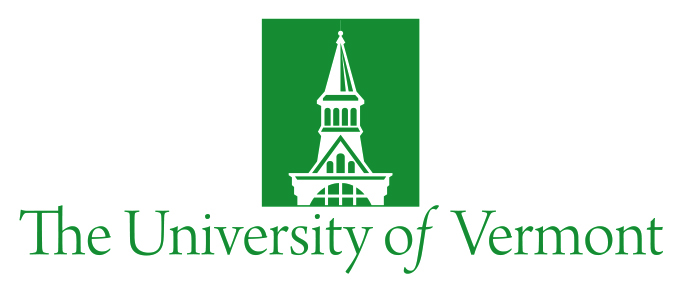Outcomes from meeting:
- 15 Commentaries in Special issue of the Journal of Agriculture, Food Systems and Community Development
- Summit proceedings where we compiled the materials generated throughout the process of the event, and around it, so that we could hold it all in one place.
- A collection of short interviews that were recorded at the event. The playlist contains 8 videos of differently positioned people sharing responses to the question: what does the co-creation of knowledge looks like in relation to agroecology in your context? These interviews as a whole provide insight into some of the diversity of meanings and practices of knowledge co-creation and we hope can be used as a resource for teaching, learning and inspiration.
- A short video about the Summit.
Overview of Event
Agroecology is increasingly recognized for its potential to address multiple crises in the food system, including those pertaining to climate change, biodiversity loss, rural livelihoods, nutrition declines, food insecurity, environmental degradation, and persistent racial and social inequities. According to the High Level Panel of Experts of the World Committee on Food Security (HLPE 2019), agroecology reflects,
“Approaches that favor the use of natural processes, limit the use of purchased inputs, promote closed cycles with minimal negative externalities and stress the importance of local knowledge and participatory processes that develop knowledge and practice through experience, as well as more conventional scientific methods, and address social inequalities. Agroecological approaches recognize that agrifood systems are coupled social–ecological systems from food production to consumption and involve science, practice, and a social movement, as well as their holistic integration, to address food and nutritional security.”
This definition is useful because it encompasses a broad understanding of agroecology within which a diverse set of actors - from scientists to movements to farmers – are viewed as important participants. Agroecology has become a key part of the global response to climate change, while meeting food needs and ensuring no one is left behind. Yet awareness of agroecology and its implementation in the United States is lagging relative to many other countries. While there are related fields of thinking, movements, and approaches in the U.S. (e.g., regenerative agriculture, organic, sustainable agriculture, local food, food justice), agroecology has been underdeveloped, despite its potential to foreground the deep transformative changes desperately needed here in the U.S. and globally.
The notion of advancing agroecology in the U.S. raises many important questions, such as: What does agroecology look like in different socio-ecological contexts? What practices, technologies, and market-arrangements are best suited for U.S.-based agroecology? How can we tackle the structural barriers in U.S. agriculture and food systems (e.g., unequal land ownership, Farm Bill policies and processes, corporate concentration and corporation-dominated markets), especially as they relate to racial inequality and other dimensions of inequity in this country? Given the political and economic power of agribusinesses in the U.S., how can agroecology gain a foothold? How can research and academic institutions be transformed to confront the structural and systemic barriers that constrain agroecology? How can research support agroecological transition processes at the farm, community, regional, and national levels? What is required of researchers who seek to collaborate with farmers, farmworkers, rural communities, and social movements? What kinds of shifts in funding programs, priorities, and in the governance of public and private research need to occur to support agroecology? How can a bridge be created from the current US agriculture system to one based on agroecological principles?
These questions motivated a group of scholars to convene the first national summit on agroecological research in the U.S. The summit Organizing Committee commissioned the survey presented in this report to inform the discussions and debates at the 22-25 May 2023 summit in Kansas City. The summit convened scholars, activists, and growers to build relationships, identify shared goals and values, navigate disagreements, and learn together across differences. One specific goal was to leverage this convening to support the development of research that could help advance agroecology in the U.S. The aim was to prompt thinking and guide researchers, organizations, and other actors engaging with research in their agroecology work. The Organizing Committee wishes for the outcomes of the summit to help inform the wider agroecology community, farmer 5 organizations, research networks and groups, foundations, the USDA, and other policymakers. Such outcomes, we hope, can help mobilize policy change and increased financial support for agroecology writ large and, more specifically, for individuals and communities who have been most harmed by food and agricultural policies to date. Any effort to envision a path towards scaling agroecology in the U.S. must draw on the experience and expertise of a diverse array of participants. To that end, the summit gathered a group of nearly 100 researchers, activists, funders, policymakers, and practitioners from across the country. But while the group of participants was diverse, it represented only a fraction of the many perspectives, experiences, and priorities that comprise agroecology in the U.S. We desired a way to invite additional perspectives so that summit proceedings and outcomes may be informed by a broader range of voices.
Organizing Committee
Deborah A. Neher, University of Vermont
Colin Anderson, University of Vermont
Andrea D. Basche, University of Nebraska
Christine Costello, Pennsylvania State University
Mary K. Hendrickson, University of Missouri
Bruce D. Maxwell, Montana State University
Antonio M. M. Roman-Alcalá, California State University-East Bay
Aubrey Streit Krug, The Land Institute
William F. Tracy, University of Wisconsin
Ernesto Méndez, University of Vermont
With support from Ricardo Salvador, Union of Concerned Scientists (Advisor); Katie Horner, University of Vermont (Postdoctoral Fellow); and Janica Anderzén (PhD Candidate)
Fiscal Supporters
 Food Systems Research Center | ||

